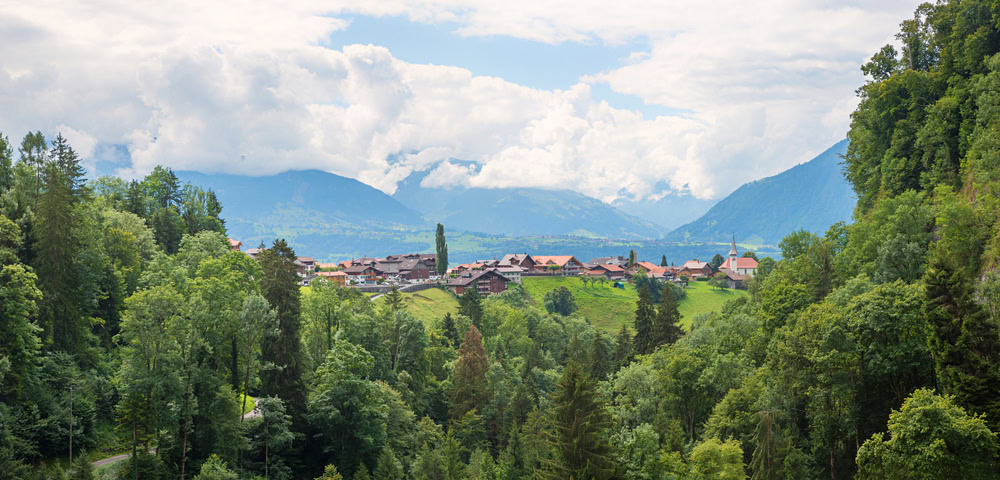Readjust the compass?
Which way is it going? In music, but not only there. Who sets the direction? The Bern Music Festival from September 4 to 8 is dedicated to the theme "Compass".

A compass is a useful thing, even if it seems to have long since been replaced by newer technologies. It gives us a clear disposition of the world. We then know where north is. We can orient ourselves. But is that still enough today, as the most diverse directions and alignments appear side by side? We need to think about the compass again, we need to feel how it swings. Sometimes it's a slight vibration, but sometimes it's a hoofbeat ...
Orientation and reorientation
The Bern Music Festival therefore proposed the "Compass" theme to the city and canton's music scene. The latter responded with a variety of ideas, some of which the Board of Trustees selected and had developed. One event with Ludmilla Mercier and Ulysse Loup takes us to the calving glaciers of Greenland, while another with Werner Hasler and Stefan Schultze takes us into the world of animals, which also use an internal compass to guide their movements and flights. For example, how synchronously do three turntable players (including Marcel Zaes), who play in different parts of the world, coordinate themselves? Isn't their imprecision the interesting thing about it? What does an Iranian musician (Ali Latif-Shushtari) imagine about the micrograms of the wandering Robert Walser, where do they lead him? And what does Arnold Schönberg's stirring contemporary document still mean to us today? A Survivor from Warsaw? The Berlin opera company Novoflot and the Thun-born composer Michael Wertmüller have taken on the piece and shed new light on it.
Such projects show how differently today's musicians operate. But hasn't orientation in the musical world always been reconsidered? Individual composers have become compasses, in their own time and beyond, simply by asking questions and sometimes trying to find answers. Schönberg, for example, certainly saw himself in such a position. With atonality and, above all, the twelve-tone technique, he believed he was pointing music history in the right direction. And he did, even if it is no longer uncontested. It is still worth taking a closer look at him. In the three-part concert series Extreme Romanticism, the piano duo Susanne Huber / André Thomet focus on two of his early atonal works and add quarter-tone music by his contemporaries Charles Ives as a contrast. Ives also appears in the second part of the series, to which Jacques Demierre contributes up-to-date commentaries. And Franz Liszt, the true future musician of the 19th century, appears as the third compass figure, with whom the electronic musician Olga Kokcharova enters into a boundary-breaking dialog.
Directions and barriers
Borders often stand in the way of a compass. And that is why the Ensemble Proton Bern, together with four composers and the vocal ensemble Cantando Admont, is exploring the borders of our country, its openness and its isolation. What inner compass do refugees follow on their difficult journey through our country? What barriers do they have to overcome? The international vocal quartet Operadicals (with Franziska Baumann) and the Bernese choir suppléments musicaux, on the other hand, search for the terra incognita of the human voice. And Mauricio Kagel, the Argentinian-born composer based in Cologne, looks at the world from an unusual perspective in his Windrose pieces. For him, the south, which we associate with heat, stands for Patagonian cold. In this way, orders are thrown into turmoil.
Composer in Residence: George E. Lewis
Crossing boundaries and reorientation are also central to the musician who is coming to Bern as Composer in Residence: George E. Lewis. The trombonist from the jazz avant-garde circle of the AACM (Association for the Advancement of Creative Musicians) has long been one of the most important figures in US music. His music combines improvisation and composition, computer-controlled installations and interactive concert forms with a profound reflection on the conditions of contemporary musical creation. He will talk about decolonization; his computer orchestra interacts with pianist Magda Mayas in Voyager; and he is writing a new piece for the versatile wind-dynamic organ in Bern Cathedral. Daniel Glaus plays the solo part and thus becomes the "devil in the cathedral". With each performance, the way of seeing and hearing changes. Even the compass of the scores can no longer be completely relied upon. But perhaps that is precisely what is liberating ...
Bern, September 4 to 8, 2024









